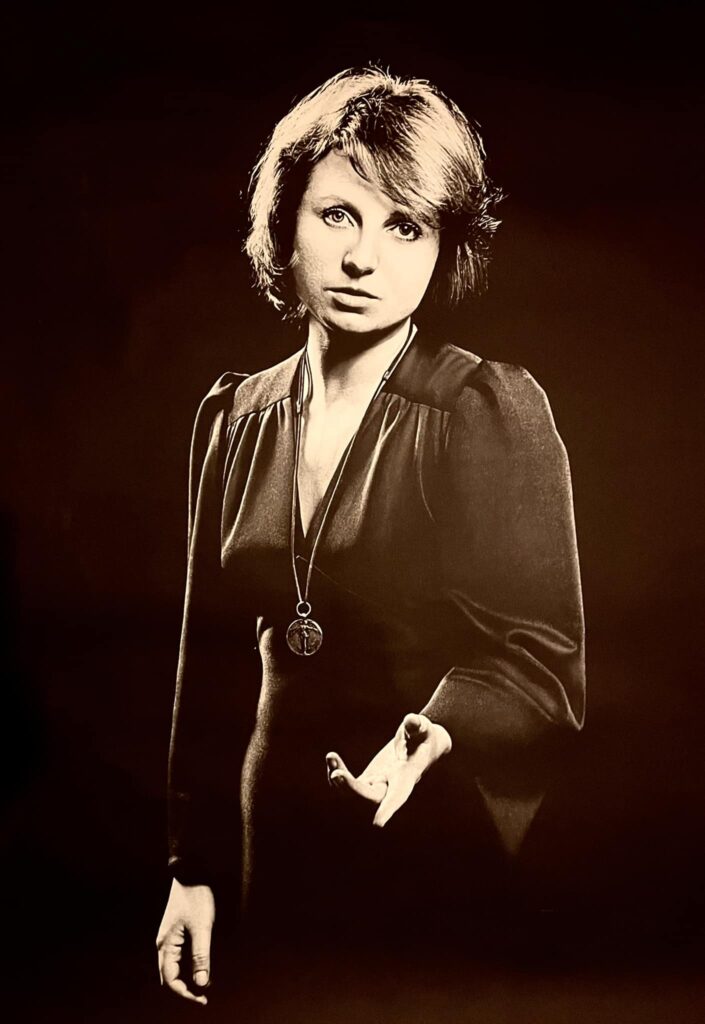Elżbieta Wojnowska
A voice that turns poetry into emotion



She is an artist whose work has become a permanent part of the canon of Polish poetic music. Her passion, talent, and dedication continue to inspire generations.
A voice that doesn’t just sing—but cries out with emotion
Not everyone sings. Some tell stories.
Elżbieta Wojnowska was never just an ordinary singer. She never chased easy hits or followed trends. She didn’t sing—she interpreted. Every one of her songs is a story you can’t forget. If you’ve ever heard “Zaproście mnie do stołu”, it stays with you forever. Because she doesn’t just perform songs—she lives them. And she makes you live them too.
FAMA 1973 – When a Song Becomes a Legend
She wasn’t famous yet. She performed at the Stodoła club, where students sang with more than just talent—they sang with something deeper. It was there, at Stodoła, that she learned she could take part in the Festival of Artistic Academic Youth (FAMA) in Świnoujście. That’s where she picked up the lyrics by Włodzimierz Szymanowicz, “Zaproście mnie do stołu”, and… something happened. Henryk Alber composed the music at lightning speed. On stage stood the Zbigniew Piotrowski Big Band, the Old Timers ensemble, and the Szczecin University of Technology Choir.
And she… sang.
The audience went wild.


“When I sang that song, the audience went wild with delight.”
There was no competition—there was an event. Then came Kraków, the Festival of Student Songs and Singers – and another grand prize. In 1974, it was Opole, and Elżbieta Wojnowska became a name everyone knew.
What made Wojnowska stand out?
🔥 She didn’t sing like the others.
🔥 She didn’t aim to sound pretty.
🔥 She wanted you to feel every note and every word.
Her interpretations were like conversations with the soul.
She wasn’t afraid of difficult themes, and she didn’t sing about love in a sugar-coated way.
She reached for the works of Rafał Wojaczek, Halina Poświatowska, Tadeusz Różewicz, Bertolt Brecht.
The best composed for her:
🎶 Henryk Alber
🎶 Janusz Strobel
🎶 Janusz Tylman
🎶 Włodek Pawlik
This wasn’t music for everyone. It was music for those who wanted something more.
“Życie moje” – a debut that left a mark
In 1976, she released the album “Życie moje”. It wasn’t easy, it wasn’t light.
It was music that made you stop and think.
🎵 “Mały szary człowiek” – a hymn to the people we pass by on the street, never noticing they exist.
🎵 “Życie moje” – a personal, intense, deeply emotional story.
Not everyone was ready for it.
But those who were never forgot that album.
Silence, then a great return
After years on stage, she disappeared.
Not because she lost her voice.
Maybe because the world, for a while, stopped being ready for music that speaks the truth.
But true voices never fall silent forever.
In 1999, she returned. On the radio stage of Trójka, she showed that she still had exactly the same power as before.
And a year later – the album “Zaproście mnie do stołu”.
A tribute to the song that changed everything.
Elżbieta Wojnowska today. This is not a story about someone who once sang and faded away.
It’s the story of someone who still speaks to people through music.
Because true art never fades.
Her voice still moves.
Her interpretations are still relevant.
Her work still makes you pause and reflect, even if just for a moment.
And if you want to feel it for yourself, just listen: